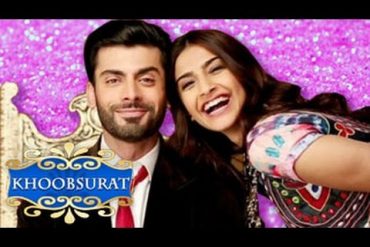Chicago, May 20 (IANS) A woman in her seventies takes the microphone to recite a short poem, which, she warned the men present, was on the hazards of flirting. “Cheda na karo ate jatein raston mein, pale pad gayi to mushkil hogi” (Do not flirt with every girl who crosses your path, if she falls for you, you will have a problem).
It was a couplet which would have been greeted with cat calls and whistles among college students. But the men and women cheering the speaker lustily, were in their sixties and seventies and included a large number of conservatively dressed Muslim women.
About a hundred senior citizens had gathered at the Indo American Center, a Chicago immigrant service organization, for an afternoon of poetry, songs and food. The center is open to all immigrants, but is patronized predominantly by immigrants from the Indian sub-continent.
The afternoon’s event is part of the Golden Diners programme, funded by the Illinois Department of Aging. The progamme has grown in popularity over the last few years. According to its long time coordinator Gita Chawla, a minimum of 90 people attend it daily, with the attendance doubling at special events organized to celebrate festivals like Diwali, Mother’s Day and Father’s Day.
Participation in the programme has grown dramatically as Indian American citizens continue to sponsor their parents to live in the US. Many of these elderly immigrants, just finding their moorings in a new culture, are retired, in their seventies or older.
Immigrant activists say that being transplanted to a new country and culture is hard for even younger immigrants. The elderly, especially from South Asia, have additional handicaps. A significant number of them do not have the qualifications to make them employable in the United States. Many are not proficient in either English or in using computers. No one of the group attending the event had a driver’s license. With their sons and daughters working grueling hours in a recession racked economy, the isolation of these elderly is complete.
Some senior immigrants refer to their life in the US as living in a “golden cage” attributable to their ignorance of the language, lack of mobility and social contacts. Some have not found the peace they sought in their ‘golden years’. There have been reported cases of sons and daughters treating their aged parents as nothing more than free housekeepers.
For this group, however, it is circumstances and age -related afflictions, that are to blame rather than ungrateful offspring. Six days a week, they gather at noon, for a few hours of poetry recitation, ghazals, old Hindi film songs and jokes, followed by an Indian ‘thali’.
The participants are divided, almost equally, between Indian Hindus and Muslims, a significant percentage of whom hail from Pakistan. There is a stray Bangladeshi or Nepali. But if the two groups are aware of the issues bitterly dividing the two nations in the sub-continent, they show no outwards signs of it. What seems to unite them is a common culture of poetry, music – and food, which, says Chawla, is an integral part of these get-togethers.
Chawla gently coaxes an elderly man with a flowing beard to come to the microphone. His eyes fixated on the paper in his hand, he reads the poem he has composed for the day. Ab humhe neend nahi aati, bus ek dustoor hain jo nibana padta hain, subhe hone wali hain, humhe to armon ko be sulana padta hain. (These days, sleep eludes me,it is but a ritual I have to go through, dawn is about to break, I have to put my aspirations to sleep). The hall erupts in applause as he shuffles back to his chair.
It is now the turn of an elderly woman. She recites,”Zakm sabko mat dikao, log chidkenge namak, aayega na koyi, marham lagane liye, mil rahan tha bheekh mein sikha sone ka, main nahin thayar tha jhuk kar uthane ke liye. (Do not display your wounds lest people rub salt on them, no one will come to rub balm on them, I was given a golden coin in alms, but I was not ready to stoop to pick it up).
Chawla invites an elderly gentleman to sing. He proceeds to do so with great solemnity but hopelessly off key. The audience is nevertheless indulgent, and even rewards him with a feeble applause. Next comes a portly gentleman who sings Tum agar kise aur ko chahogi to mushkil hogi from the 1963 Raj Kapoor film Dil Hi To Hai. The women applaud the loudest and ask for an encore.
(Ashok Easwaran can be contacted at [email protected])
The opinions, beliefs and viewpoints expressed by authors, news service providers on this page do not necessarily reflect the opinions, beliefs and viewpoints of Hill Post. Any views or opinions are not intended to malign any religion, ethnic group, club, organization, company, or individual.
Hill Post makes no representations as to the accuracy or completeness of any information on this site page.


